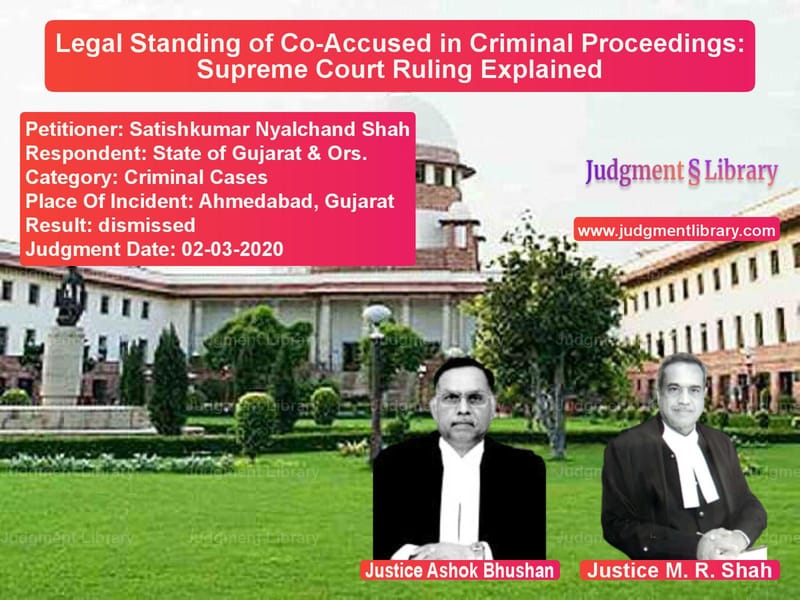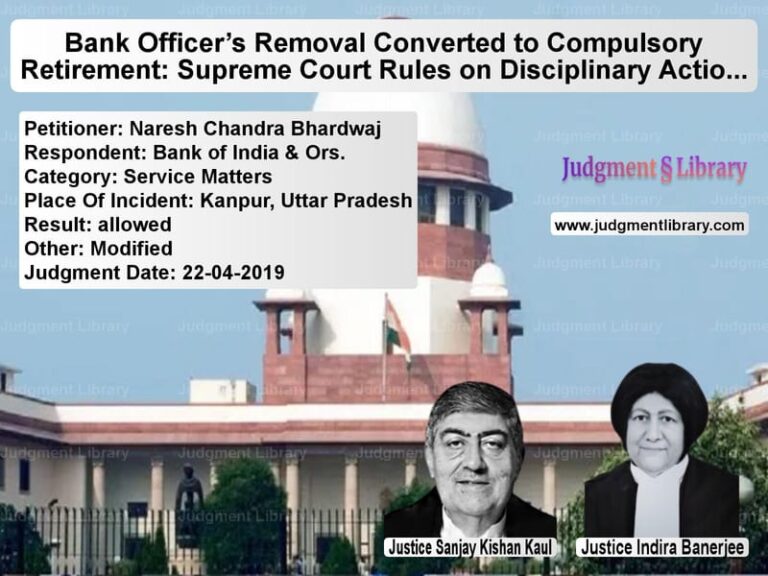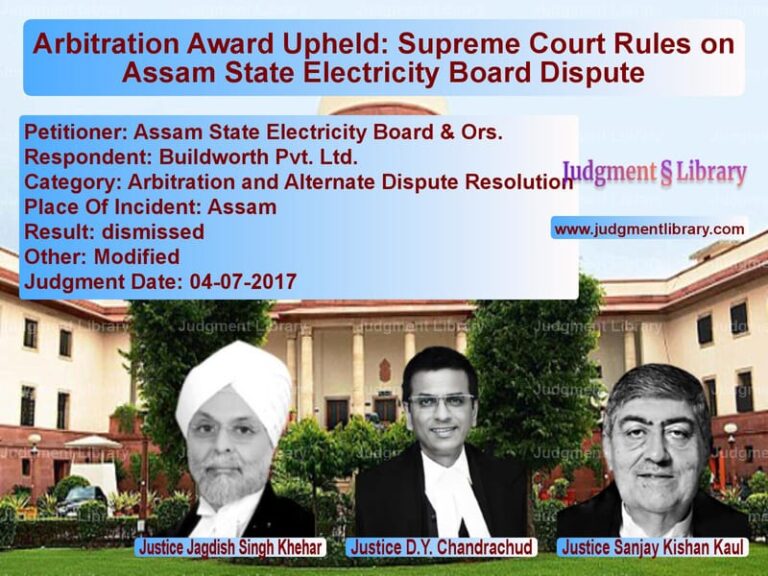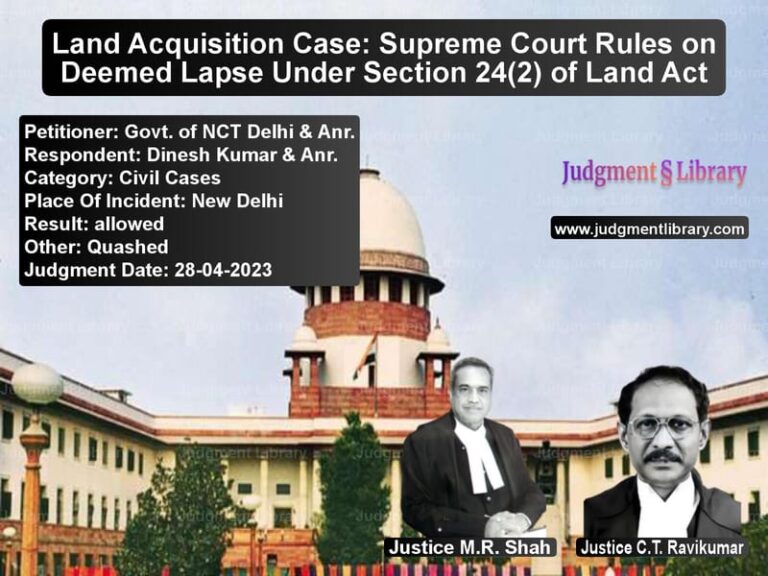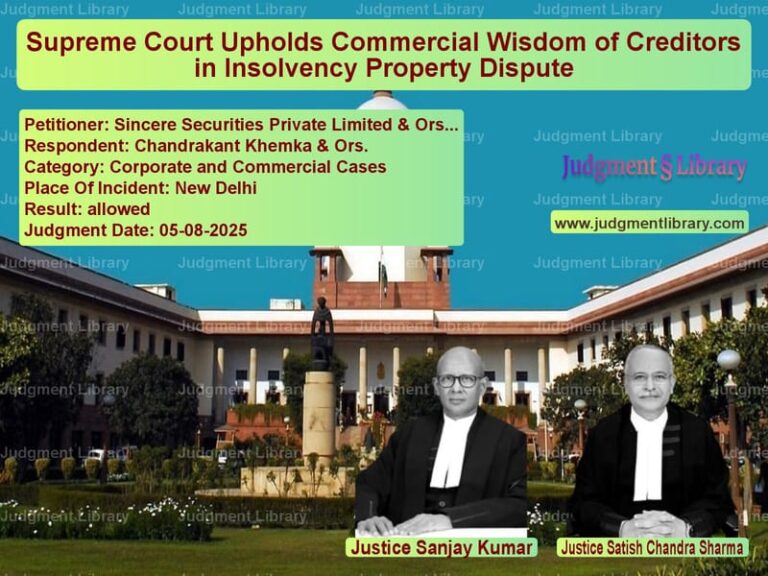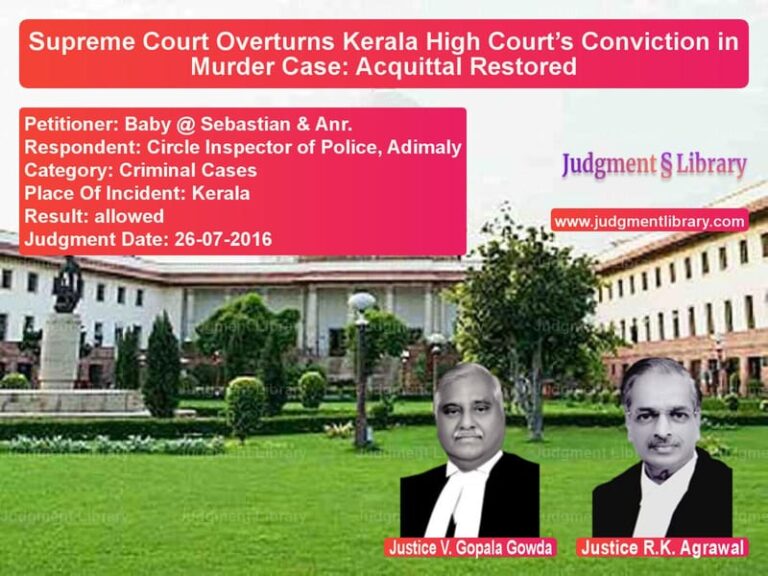Legal Standing of Co-Accused in Criminal Proceedings: Supreme Court Ruling Explained
The Supreme Court recently ruled on the legal standing of a co-accused in ongoing criminal proceedings, specifically in the case of Satishkumar Nyalchand Shah v. State of Gujarat & Ors.. The case revolved around the tragic collapse of the Shikhar Apartment in Ahmedabad during the 2001 earthquake, which resulted in the deaths of 98 individuals.
The petitioner, Satishkumar Nyalchand Shah, was already charge-sheeted in connection with the collapse. He sought to be impleaded as a party respondent in a Special Criminal Application filed by a victim seeking further investigation against another accused, Mr. M. N. Bhaumik, who was not charge-sheeted. The High Court of Gujarat denied the petition, leading to the present appeal before the Supreme Court.
Petitioner’s Arguments
Senior Advocate Shri Maninder Singh, representing the appellant, argued that the High Court erred in refusing to implead the appellant as a party in the proceedings. He cited previous Supreme Court judgments, including Athul Rao v. State of Karnataka (2018) 14 SCC 298 and Amrutbhai Shambhubhai Patel v. Sumanbhai Kantibhai Patel (2017) 4 SCC 177, to support the claim that a complainant does not have the right to seek further investigation after the charge sheet has been framed.
He further contended that since the victim accused the investigating agency of improper investigation, the appellant should have been allowed to defend himself, as his involvement in the case was already established. He also relied on Rule 51 of the Gujarat High Court Rules, which states that all parties to the proceedings from which an appeal arises must be made parties to the appeal.
Respondent’s Arguments
The private respondent, appearing in person, along with the counsel for the State of Gujarat, vehemently opposed the appeal. They argued that the appellant, already charge-sheeted and facing trial, had no locus standi in the application seeking further investigation against another accused.
They cited Supreme Court precedents, including Dinubhai Baghabhai Solanki v. State of Gujarat (2014) 4 SCC 626 and Narender G. Goel v. State of Maharashtra (2009) 6 SCC 65, to emphasize that neither the accused nor a proposed accused has a say in applications for further investigation.
Supreme Court’s Ruling
The Supreme Court dismissed the appeal, holding that the appellant had no right to be impleaded in the Special Criminal Application. The Court observed:
“When the proposed accused against whom further investigation is sought is not required to be heard at this stage, there is no question of hearing a co-accused against whom the charge sheet is already filed.”
The Court further ruled that Rule 51 of the Gujarat High Court Rules did not apply in the present case, as applications under Section 173(8) CrPC for further investigation cannot be equated with an appeal against an order in a criminal case.
Conclusion
This judgment clarifies the limited rights of co-accused in ongoing investigations and reinforces the principle that once a charge sheet is filed, an accused does not have the right to interfere in applications seeking further investigation against other individuals.
Petitioner Name: Satishkumar Nyalchand Shah.Respondent Name: State of Gujarat & Ors..Judgment By: Justice Ashok Bhushan, Justice M. R. Shah.Place Of Incident: Ahmedabad, Gujarat.Judgment Date: 02-03-2020.
Don’t miss out on the full details! Download the complete judgment in PDF format below and gain valuable insights instantly!
Download Judgment: Satishkumar Nyalchan vs State of Gujarat & O Supreme Court of India Judgment Dated 02-03-2020.pdf
Direct Downlaod Judgment: Direct downlaod this Judgment
See all petitions in Bail and Anticipatory Bail
See all petitions in Fraud and Forgery
See all petitions in Theft and Robbery Cases
See all petitions in Judgment by Ashok Bhushan
See all petitions in Judgment by Mukeshkumar Rasikbhai Shah
See all petitions in dismissed
See all petitions in supreme court of India judgments March 2020
See all petitions in 2020 judgments
See all posts in Criminal Cases Category
See all allowed petitions in Criminal Cases Category
See all Dismissed petitions in Criminal Cases Category
See all partially allowed petitions in Criminal Cases Category

